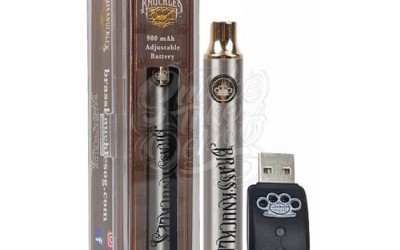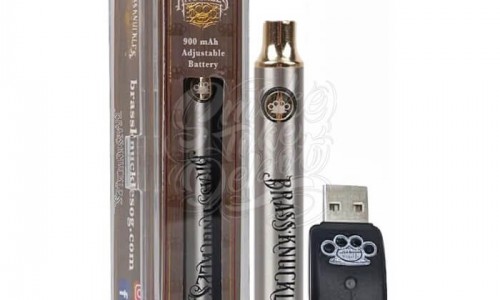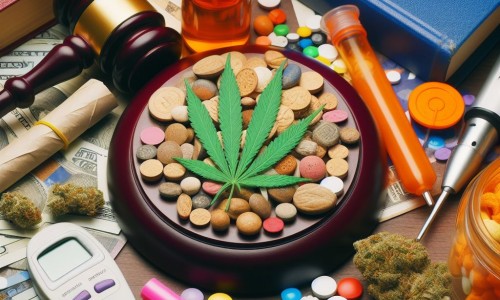What Is Delta 8 THC? A Comprehensive Guide

Everything You Need to Know What is Delta 8 THC
Delta 8 THC stands out as a cannabinoid renowned for its gentle psychoactive effects and potential health advantages. Nevertheless, it comes with certain drawbacks, including legal uncertainties, limited availability, and concerns related to drug testing. Therefore, it is crucial to stay well-informed and exercise caution before purchasing or using products containing Delta-8 THC.
Seeking advice from a medical professional or consulting with a doctor before utilizing Delta 8 THC for medicinal purposes is highly recommended. Within this text, we aim to address several frequently asked questions regarding Delta 8 THC, such as its definition, distinctions from Delta 9 THC, the manufacturing process, duration of its effects, and methods for eliminating it from your system. We trust that you will find this information both valuable and enlightening.
Questions to Consider
- What is Delta 8 THC, and how is it different from Delta 9?
- How much THC is in Delta 8? What are the effects of Delta 8, and are there potential side effects?
- Where can Delta 8 be legally purchased?
- Why is Delta 8 legal at the federal level, and what are the state-specific regulations?
- How is Delta 8 made?
- How long does Delta 8 stay in your system?
- How to clear Delta 8 from your system?
What is Delta 8 THC?
Delta 8 THC is one of the many cannabinoids found in the cannabis plant. Cannabinoids, including Delta 8 THC, are chemical compounds that interact with the endocannabinoid system in the human body. This system regulates various functions such as mood, pain, appetite, and memory. Now, addressing the question of "what is Delta 8 THC," it's important to note that Delta 8 THC is an isomer of Delta 9 THC, sharing the same molecular formula but featuring a different arrangement of atoms. This subtle difference results in distinct effects and properties.
Delta 8 THC occurs naturally in hemp plants in very low concentrations, usually less than 0.1%. However, it can also be extracted from hemp or synthesized from CBD or Delta-9 THC using chemical processes such as isomerization or distillation. Delta 8 THC products are typically made by infusing Delta 8 THC distillate into edibles, gummies, tinctures, oils, or vapes.
How Much THC is in Delta 8?
Delta 8 THC stands as a variant of THC, distinct from Delta 9 THC, which constitutes the primary psychoactive element in marijuana. Delta 8 THC exhibits a diminished affinity for CB1 receptors in the brain, the agents behind the typical cannabis-induced high. Consequently, the potency of Delta 8 THC is lower, rendering it more manageable compared to Delta 9 THC, ultimately contributing to a gentler and milder user experience.
For consumers, particularly those concerned about THC content, it becomes imperative to scrutinize lab reports and product labels. These documents provide crucial insights into the composition of Delta 8 products, ensuring compliance with legal and quality standards. Therefore, the question of "how much THC is in Delta 8" underscores the importance of informed decision-making when considering the purchase or usage of Delta 8 THC products.
What Does Delta 8 Do?
Delta 8 THC has the potential to elicit a variety of effects and advantages, contingent on factors such as dosage, method of intake, and individual variables. Some prevalent effects and advantages associated with Delta-8 THC include:
- Euphoria: Addressing the question, what does Delta 8 do? Delta 8 THC may instigate feelings of joy, contentment, and satisfaction, akin to Delta 9 THC, albeit more mildly and less overwhelmingly. Additionally, Delta-8 THC can uplift mood and alleviate stress and feelings of depression.
- Relaxation: Delta 8 THC can foster a sense of serenity, relaxation, and tranquility, all without inducing sedation or a feeling of being immobilized. Moreover, Delta-8 THC has demonstrated efficacy in addressing issues related to insomnia and promoting better sleep quality.
- Pain Alleviation: Delta 8 THC acts as both an analgesic and an anti-inflammatory agent, effectively reducing pain and inflammation associated with various conditions such as arthritis, neuropathy, migraines, and menstrual cramps.
- Appetite Stimulation: Delta 8 THC is known for stimulating the appetite and enhancing the enjoyment of food, mirroring the effects of Delta 9 THC but without the onset of intense cravings. Additionally, Delta-8 THC can be beneficial in alleviating nausea and vomiting, particularly in individuals undergoing chemotherapy for cancer.
Where is Delta 8 Available for Sale?
Where is Delta 8 available for sale, and what factors should one consider when purchasing? Delta 8 THC items can be found for purchase on different online and offline platforms, including websites, dispensaries, vape shops, health stores, and gas stations. Nevertheless, not all Delta 8 products are identical; certain may possess lower quality, contaminants, or incorrect labeling. Hence, it is recommended that Delta 8 products be procured from reputable and reliable sources that offer third-party lab testing, customer reviews, and clear information regarding their merchandise. Also, traveling in the USA should consider federal marijuana legalization.
- The origin and method of extracting the Delta 8 THC distillate. Acquiring Delta 8 products derived from organic, pesticide-free hemp and extracted through safe and clean methods such as CO2 or ethanol extraction is preferable.
- The strength and purity of the Delta 8 THC distillate. It is crucial to scrutinize the lab reports and labels of Delta 8 products to ensure they contain the precise amount of Delta 8 THC, with no more than 0.3% Delta 9 THC. Additionally, it is advisable to steer clear of Delta 8 products that incorporate additives, preservatives, or artificial ingredients that may compromise product quality and safety.
- The kind and flavor of Delta 8 products. Various Delta 8 products, including edibles, gummies, tinctures, oils, or vapes, are available, offering diverse methods of consumption, onset, duration, and effects of Delta 8 THC. Selecting the type of Delta 8 product that aligns with one's preferences, needs, and tolerance is advisable. Furthermore, some Delta 8 products may offer different flavors, such as fruity, minty, or natural, enhancing the taste and overall experience of the products.
| Product | Type | Potency | Flavor | Price |
|---|---|---|---|---|
| 3Chi Delta 8 Gummies | Edible | 25 mg per gummy | Black Raspberry, Watermelon | $20 for 8 gummies, $30 for 16 gummies |
| Delta Effex Delta 8 Cartridge | Vape | 1000 mg per cartridge | Banana Candy Kush, Strawberry Cough, Grand Daddy Purp, Cali Orange Kush, Razzberry Kush | $40 per cartridge |
| Diamond CBD Chill Plus Delta 8 Oil | Tincture | 1000 mg per bottle | Natural | $60 per bottle |
| Moonwlkr Delta 8 Softgels | Edible | 25 mg per softgel | Natural | $50 for 25 softgels |
| Binoid Delta 8 THC Wax Dabs | Concentrate | 900 mg per container | Blue Dream, Fruity Pebbles, Lemon Haze, Mango Kush, Pineapple Express | $35 per container |
Why is Delta 8 Legal?
Delta 8 THC enjoys federal legality as stipulated in the 2018 Farm Bill, permitting the manufacturing, sale, and utilization of hemp and its derivatives, provided they contain no more than 0.3% Delta 9 THC on a dry weight basis. Recognized as a hemp-derived product, Delta 8 THC can be derived from hemp extraction or synthesized from CBD, itself a hemp-derived product. Consequently, Delta 8 THC aligns with the legal definition of hemp, exempting it from the same constraints and regulations imposed on Delta 9 THC.
Why is Delta 8 Legal at the Federal Level:
Nonetheless, the legality of Delta 8 THC varies among states, as each state maintains distinct regulations concerning hemp and its derivatives, potentially leading to bans or restrictions specifically on Delta 8 THC.
| State | Legal Status of Delta 8 THC |
|---|---|
| Alabama | Legal |
| Alaska | Illegal |
| Arizona | Legal |
| Arkansas | Illegal |
| California | Legal |
| Colorado | Illegal |
| Connecticut | Legal |
| Delaware | Illegal |
| Florida | Legal |
| Georgia | Legal |
| Hawaii | Legal |
| Idaho | Illegal |
| Illinois | Legal |
| Indiana | Legal |
| Iowa | Illegal |
| Kansas | Legal |
| Kentucky | Legal |
| Louisiana | Legal |
| Maine | Legal |
| Maryland | Legal |
| Massachusetts | Legal |
| Michigan | Legal |
| Minnesota | Legal |
| Mississippi | Illegal |
| Missouri | Legal |
| Montana | Illegal |
| Nebraska | Legal |
| Nevada | Legal |
| New Hampshire | Legal |
| New Jersey | Legal |
| New Mexico | Legal |
| New York | Legal |
| North Carolina | Legal |
| North Dakota | Illegal |
| Ohio | Legal |
| Oklahoma | Legal |
| Oregon | Legal |
| Pennsylvania | Legal |
| Rhode Island | Illegal |
| South Carolina | Legal |
| South Dakota | Illegal |
| Tennessee | Legal |
| Texas | Legal |
| Utah | Illegal |
| Vermont | Legal |
| Virginia | Legal |
| Washington | Legal |
| West Virginia | Legal |
| Wisconsin | Legal |
| Wyoming | Legal |
Several reasons underpinning state-level prohibitions on Delta 8 THC include:
- Delta 8 THC possesses psychoactive properties, potentially compromising users' judgment, coordination, and reaction time, posing risks to public safety and health.
- Unlike naturally occurring compounds in hemp plants, Delta 8 THC is artificially synthesized using chemical processes, which might involve the use of toxic solvents, acids, or catalysts, introducing the risk of contaminating the final product or harming the environment.
- The absence of regulation by the Food and Drug Administration (FDA) leaves Delta 8 THC products without standardized quality control, paving the way for potential fraud, mislabeling, or adulteration.
- Delta 8 THC lacks comprehensive scientific exploration and understanding, resulting in a shortage of evidence and clinical trials supporting its safety, efficacy, and potential benefits or risks for diverse conditions and populations.
How is Delta 8 Made?
How is delta 8 made, and what are the key methods employed in its production? Delta 8 THC doesn't occur naturally in hemp plants; however, it can be obtained through extraction from hemp or synthesized from CBD or Delta 9 THC via chemical processes. Two primary approaches are employed for Delta 8 THC production: isomerization and distillation.
- Isomerization: This process entails transforming CBD or Delta 9 THC into 8 THC using an acid or catalyst, such as sulfuric acid, hydrochloric acid, or zinc chloride. The acid or catalyst rearranges the atoms in the CBD or Delta 9 THC molecule, generating a Delta 8 THC isomer. While this method is relatively straightforward and cost-effective, it may yield undesired byproducts like Delta 10 THC, Delta 6a,10a THC, or Delta 7 THC, which could entail unknown effects or risks. Additionally, using toxic solvents, acids, or catalysts in this method may lead to contamination of the final product or environmental harm.
- Distillation: This technique involves extracting Delta 8 THC from hemp using a solvent, such as ethanol or CO2, followed by purification and concentration through fractional distillation. Fractional distillation segregates different hemp extract components based on their boiling points, utilizing a fractional distillation column. Given that Delta 8 THC has a higher boiling point than Delta 9 THC or CBD, it can be separated and gathered from other cannabinoids. Although this method is more intricate and costly, it can produce a purer and more potent product with fewer impurities or contaminants.
| Method | Process | Advantages | Disadvantages |
|---|---|---|---|
| Isomerization | Converting CBD or Delta 9 THC into Delta 8 THC using an acid or a catalyst | Simple and cheap, high-yield | Unwanted byproducts, toxic solvents, acids, or catalysts, low purity and quality |
| Distillation | Extracting Delta 8 THC from hemp using a solvent and then purifying and concentrating it using fractional distillation | Pure and potent, less impurities or contaminants | Complex and expensive, low yield |






